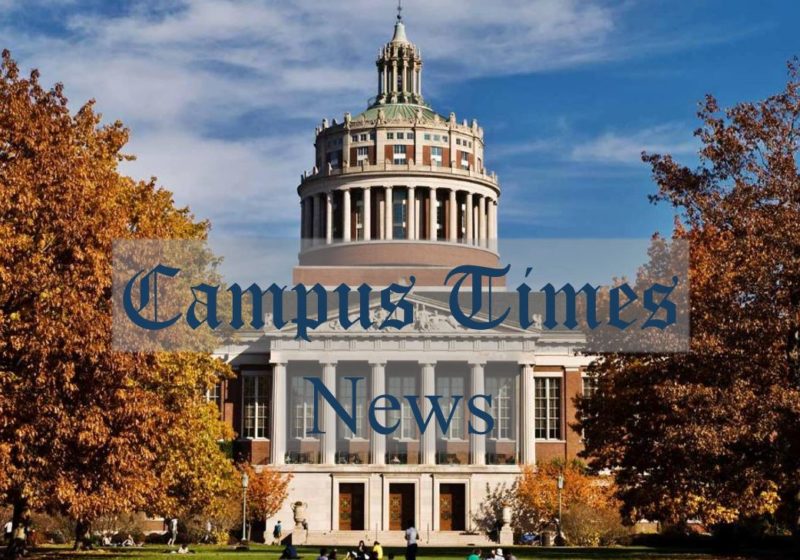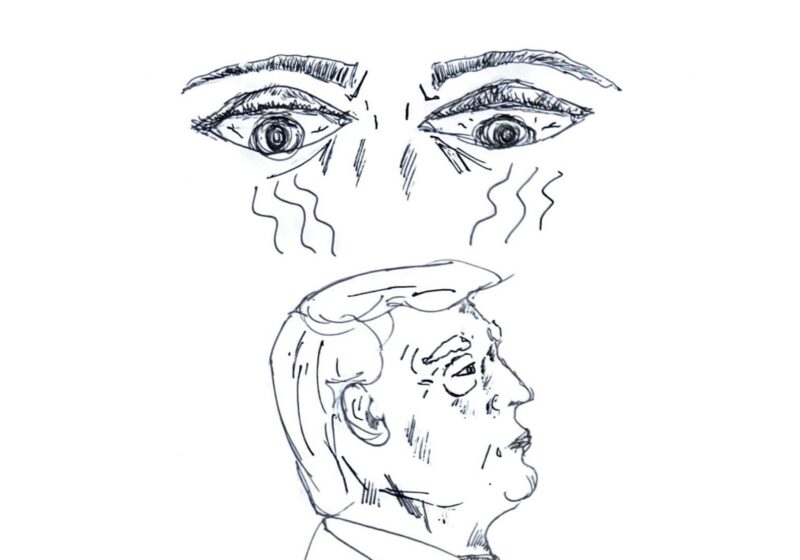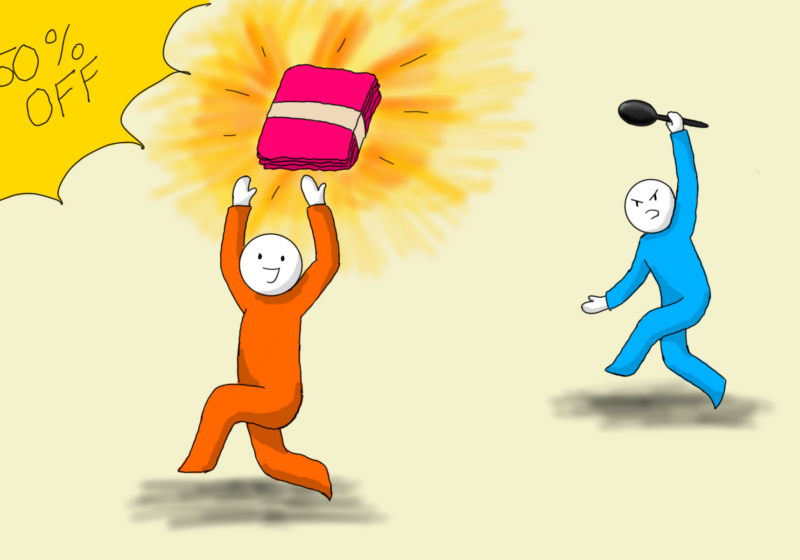UR faced budgetary concerns last summer amid the COVID-19 pandemic, and for the School of Arts, Sciences, and Engineering, the budget issues came on top of a structural deficit that predated the health crisis. The Campus Times spoke to a range of professors and employees in AS&E to hear about the variety of impacts.
In response to the pandemic, the University imposed a furlough program for staff, salary cuts for upper administration, a freeze on new hiring and capital spending, and cuts to the University’s contributions to retirement funds, which especially impacted faculty.
Within AS&E, departments had cuts to operational and travel-based expenses, as well as cuts to startup funding for new faculty to establish their research. Some departments cut money for adjunct faculty or Teaching Assistants.
Though the cuts were necessary given the financial strains caused by the pandemic, they caused some indirect consequences for faculty in both the short and the long run.
In the short term, staff furloughs strained departments. While on furlough, someone else needed to pick up the slack, whether another staff member who got furloughed at a different time or a professor.
Furthermore, the hiring freeze meant that staff and faculty who retire, accept a job elsewhere, or have an expiring contract aren’t replaced. The result is an increased workload for faculty and staff.
Some are navigating that increased workload resulting from budget cuts amidst other issues caused by the pandemic. Professors additionally had to learn how to run fully virtual or hybrid classes amidst a great deal of uncertainty. Due to health concerns, many schools in the area are closed to in-person education, and thus some faculty and staff must navigate their work-life with child care. Most are seeing a decline in opportunities to interact with their colleagues, as events, staff meetings, and conferences move to a virtual format.
Furthermore, these new stresses for faculty were all happening amid uncertainty about cuts to their own finances. It was not immediately clear how the cuts would be made, whether in furloughs, salary cuts, or retirement benefit cuts. In the end, a graduated cut to the University’s matching of retirement benefits was enacted, but that impacted different people differently.
Some newer, instructional-track faculty such as Rachel O’Donnell — an assistant professor in the Writing, Speaker, and Argument Program — do not have a high enough salary for the retirement benefit cuts to impact them at all. Others, like Physics professor Steve Teitel, have been working for enough years to have already built up a more sizable retirement pot. But for many, the retirement contribution benefits were more impactful.
The increased workload, new instructional dependence on technology, change in childcare, decline in social interaction, and retirement benefit cuts all contributed to a decline in the morale of some faculty and staff.
Robin Frye, assistant director of Tutoring and Workshops at the Center for Excellence in Teaching and Learning, said that pandemic measures were a mixed bag. “Do I miss seeing students? Yes. […] Yeah, it’s easier to have them sitting there. Is it easier to show empathy and that you’re paying attention? Maybe.”
But there are also upsides, Frye said, like how making student appointments and workshops remotely made it easier for students to attend and participate.
But beyond the short-term consequences of the cuts for workload and morale, the cuts also pose long-term challenges to the prestige of the University and its programs.
Some non-departmental programs, like the Humanities Center, saw more direct cuts.
According to Joan Rubin, the Dexter Perkins Professor in History and Director of the Humanities Center, the Humanities Center annually brings in two visiting faculty members as external fellows. However, health concerns and the hiring freeze prevented that option this year, and the money to bring in speakers was cut.
Meanwhile, departments like the International Theatre Program found the impact of budget cuts mitigated by the pandemic measures.
Because COVID-19-safe conventional theatrical productions are a near-impossibility, the planned fall season of productions was changed to one online production, Artistic Director Nigel Maister said.
“The costs of doing that and doing it in a sort of Zoom or online format are much different and much more reduced than they would in a physical production,” Maister said. “So, ironically, because of the constraints put on us by the pandemic, we have I think largely been able to meet the cuts […] without impacting what we offer students beyond what would have already […] been impacted by the pandemic.”
In other words, the program could meet cuts thanks to changes necessitated by the pandemic itself.
Maister said he was worried, however, about whether the cuts would persist to a more damaging effect, if and when distancing measures get rolled back.
“If next year, somehow there is a return to some kind of ‘normalcy,’” Maister said, “and if the cuts continue, then I think they will have major, major repercussions on what this program can do.”
Mathematics professor Alex Iosevich, who teaches MATH142, said that one of the changes caused by the budget cuts is a shift from paid undergraduate teaching assistants to credit-based TAs. To him, TAs earning credit are nearly guaranteed to earn an A grade, so the switch to credit-based TAs worsens what he called a “grade inflation crisis” that predated the pandemic.
The bigger cause for concern for departments stems from the hiring freeze. Rubin pointed out that the History department badly needs to hire an expert in the history of the recent African-American experience and could also use an Islamicist.
Teitel expressed similar hiring concerns. “Certainly in physics we depend very much on the ability to hire new faculty to replace those who have retired,” he said. “It’s also very important for the sake of bringing in new people who are active in newer fields of research that will be more the future where physics is going.” Those areas in each department that do not get filled could have long-term implications for the prestige of those departments.
However, many faculty and staff expressed a commitment to still doing the best work that they could. For many, the frustration comes not from their colleagues or students, but from the rollout of budget cuts and pedagogical changes. “I don’t think there’s any way around [morale issues],” O’Donnell said. “But I think we feel really positively about students in general, and I think that the feeling about morale really comes more from upper-level administration.”
Other faculty members echoed that sentiment. Iosevich expressed deep frustration with the administration for their handling of budget cuts, racial justice, and pedagogical changes. Iosevich and O’Donnell both felt that the University needs less of a dependence on upper administration and increased involvement of faculty in decision making.
Maister, on the other hand, said that leading an institution as large as UR through a pandemic is inevitably going to leave people unhappy. “It is a thankless task because there is no way anybody is going to be appreciative of what you’re doing. It’s a no-win situation.”
Rubin said that, for her, the financial future was only threatening “if we lose sight of our core mission as a liberal arts research university.”
“They’re laudable in our society so that we produce educated citizens as well as important for our status as an institution,” she said. “We cannot lose sight of those things. We cannot let money or our lack of it wipe out those things.”





